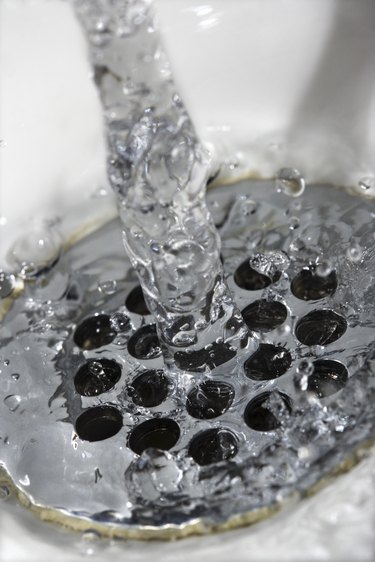
When roots from trees and plants penetrate pipes, they begin to clog the enclosed space, preventing water and waste from flowing freely through the pipe. If left untreated, the contents of the clogged pipe will back up into the drain or toilet, creating an even bigger problem. With the proper amount of copper sulfate, you can remove the clog.
Copper Sulfate
Video of the Day
Copper sulfate has various uses, including a treatment for fungal and bacterial diseases on crops and plants. In addition, copper sulfate dissolves plants and tree roots invading your sewer and septic pipes. Copper sulfate is only a temporary fix. If the offending plant is not relocated at least 20 feet from the sewer pipes or septic system, it will continue to clog the pipes.
Video of the Day
Sewer Pipes
Sewer pipes require 2 to 6 pounds of copper sulfate crystals twice a year, once in the spring and the next treatment in the fall. When applying the crystals, dump 1/2 pound of copper sulfate at a time down the toilet until you have used the entire amount. Flush the toilet after each 1/2 pound of crystals is added. Flushing the toilet will push the copper sulfate through the pipes.
Septic Pipes
As they do with sewer pipes, roots can clog septic pipes, preventing the flow of sewage and water. Use no more than 2 pounds of copper sulfate per 300 gallons of the septic tank's capacity. Improper use of the copper sulfate increases the chance of damage to your septic system. Always follow the instructions on the specific brand of copper sulfate you are using.
Considerations
Copper sulfate damages metals such as iron, brass and chrome, so keep copper sulfate away from those metals. In addition, never use copper sulfate more than twice a year. The more you use the crystals, the more likely damage will occur to the pipes.
Copper sulfate is a dangerous and toxic substance. Always wear chemical-resistant rubber gloves and safety goggles when using copper sulfate. If the crystals come in contact with your skin, flush the area immediately with cold water.